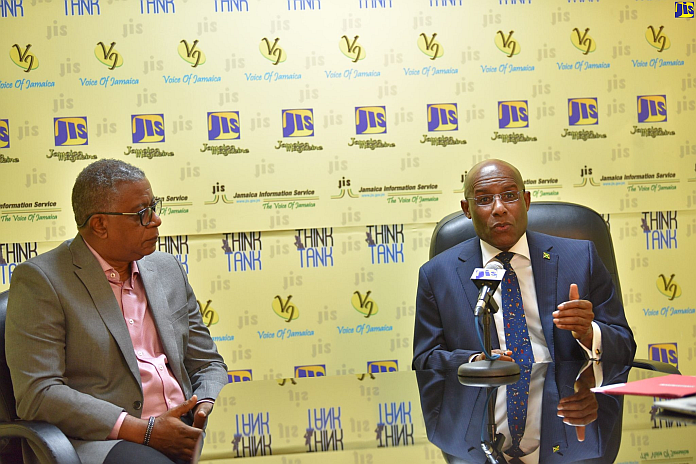By Charnele Henry
KINGSTON, Jamaica (JIS) – Jamaica stands to benefit significantly from investment in special economic zones (SEZ) and the country’s bid to become a global logistics hub, says minister of industry, investment and commerce, Senator Aubyn Hill.
SEZs are areas within a country that are created to facilitate rapid economic growth, by leveraging tax incentives as a way of attracting foreign investment and technological advancement.
Logistics services are strongly associated with trade expansion and export diversification. Citing the example of countries such as Singapore, Israel and Qatar, with relatively comparable populations but significantly higher gross domestic product (GDP) per capita than Jamaica, minister Hill argued that Jamaica cannot attain economic wealth by limiting output and markets.
“We need to export a lot more, but it’s important that we export not just goods but also services. What local businesses must do, if we are going to change from three million people with a small per-capita GDP to three million people with a rich per-capita GDP, is that people who trade must now look to invest in our country to manufacture, build, package, repackage, assemble things and provide services that we sell to the world. That [will] bring in hard currency to make the little man in our country better off,” he pointed out to JIS News.
He said the initial investment from local businesses to facilitate the recommended activities, paired with existing incentives offered through the Jamaica Special Economic Zone Authority (JSEZA), plays a part in making Jamaica attractive to international investors.
For his part, acting chief executive officer of the JSEZA, Gary Scott, said that linkages established through the Authority will ensure that the local economy benefits as a result of the incentives provided to the multinational companies.
“When these multinational corporations are operating from Jamaica, they are purchasing certain goods and services from the local economy. That is why the incentive scheme that we established under the Special Economic Zone Authority removes things like general consumption tax (GCT).
“It is not because [we want] to not have zone operators pay GCT; it is to encourage purchasing more of the goods and services from the domestic territory. So, what we are ensuring is the building out of linkage programmes that will allow for the companies in the zones to interact more freely with companies outside of the zone and purchase goods and services,” explained Scott.
Meanwhile, the JSEZA chief executive officer pointed out that post-pandemic, Jamaica has been presented with the opportunity to maximise on pharmaceutical supply chain needs, which were heightened during the COVID-19 pandemic.
“From what we have heard, there are a number of investors worldwide… that are looking for their next location to establish their ability to provide supplies and support to the largest consumer markets, which are the North American and South American markets,” Scott noted.
From June 13 to 17, Jamaica will host international investors and free zone operators at the World Free Zones Organization’s Annual International Conference and Exhibition (AICE 2022) in Montego Bay, St James, with the aim of securing investments for the country.





